Filter by

Editorial: A Feasible Approach for Natural Products to Treatment of Diseases
Introducing "A Feasible Approach for Natural Products to Treatment of Diseases"-an exploration of the therapeutic potential locked within nature's abundant offerings. This comprehensive reprint delves into the fascinating realm of natural products, uncovering their inherent properties, mechanisms of action, and potential roles in effective disease management. Through extensive scientific resear…
- Edition
- -
- ISBN/ISSN
- 9783036578729
- Collation
- 260 hlm
- Series Title
- -
- Call Number
- -
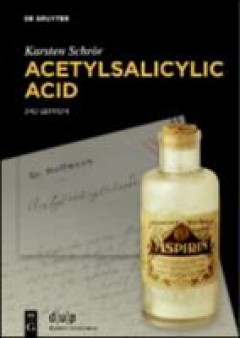
Acetylsalicylic Acid
This book is the first and to date only compendium on the history, pharmacology, toxicology, and clinic of acetylsalicylic acid – not only the best known, but probably the most successful drug in medical history. Written by one of the world's leading experts in the field of aspirin research, it addresses the latest results of research by critically evaluating over 100 studies and summing up c…
- Edition
- -
- ISBN/ISSN
- 9783110746488
- Collation
- oer.unej.ac.id
- Series Title
- -
- Call Number
- -
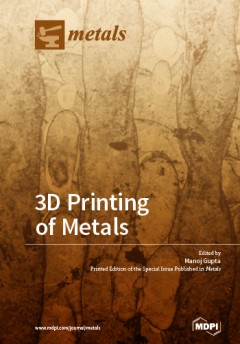
3D Printing of Metals
Three-dimensional printing is a futuristic technology capable of transforming the ways in which we make components and devices. It is almost certain that this technique will find its niche in the manufacturing sector in the very near future. In view of the growing importance of 3D printing, this book addresses key issues related to emerging science and technology in this area. Detailed and info…
- Edition
- -
- ISBN/ISSN
- 9783038425922
- Collation
- -
- Series Title
- -
- Call Number
- -
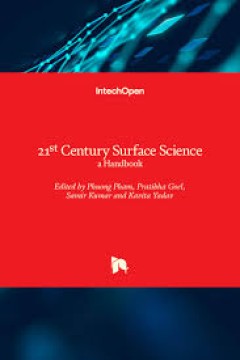
21st Century Surface Science: a Handbook
Surface sciences elucidate the physical and chemical aspects of the surfaces and interfaces of materials. Of great interest in this field are nanomaterials, which have recently experienced breakthroughs in synthesis and application. As such, this book presents some recent representative achievements in the field of surface science, including synthesis techniques, surface modifications, nanopart…
- Edition
- -
- ISBN/ISSN
- 9781789852004
- Collation
- -
- Series Title
- -
- Call Number
- -
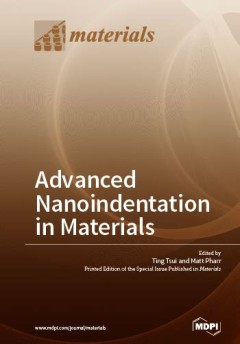
Advanced Nanoindentation in Materials
This Special Issue "Advanced Nanoindentation in Materials" contains some of the latest developments in the field of small-scale contact mechanics for a wide range of materials and biological cells. The featured manuscript revealed a new ultra-high strain rate nanoindentation method that will enable new scientific understanding of time-dependent material properties. The book also presents unique…
- Edition
- -
- ISBN/ISSN
- 9783038427490, 9783038427506
- Collation
- 236 hlm; ill., lamp.,
- Series Title
- -
- Call Number
- -
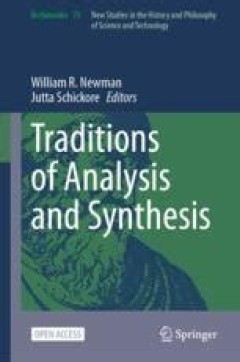
Traditions of Analysis and Synthesis
This open access book provides a fresh perspective on analysis and synthesis across several areas of inquiry. The two operations form a primary basis of modern laboratory science, ranging from the spectrographic analysis used in practically every scientific discipline today, to the naming of entire disciplines, such as synthetic organic chemistry. Despite their acknowledged significance, howeve…
- Edition
- -
- ISBN/ISSN
- 9783031763984
- Collation
- VII, 402 hlm; ill., lamp.,
- Series Title
- -
- Call Number
- -
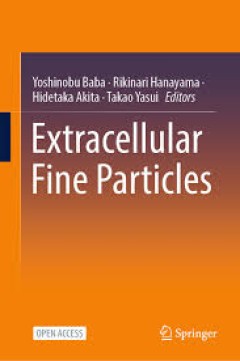
Extracellular Fine Particles
This open access book elucidates new biological phenomena caused by extracellular fine particles and highlights the development of base technologies for their control. In this book, the latest knowledge is collected on the principles of extracellular fine particles recognition, action, and biological responses. In addition, the base technologies for their detection, separation, measurement, and…
- Edition
- 1
- ISBN/ISSN
- 978-981-97-7067-0
- Collation
- VI, 290
- Series Title
- -
- Call Number
- -

Gas Explosion and Its Protection Technology in Process Industries
This open access book first introduces the explosive characteristics of combustible gas in the process industrial device, and then introduces the influence law of structural effect on gas explosion characteristics and deflagration to detonation process, and finally introduces the suppression mechanism and protection technology of gas explosion. This book takes the process industrial gas explosi…
- Edition
- 1
- ISBN/ISSN
- 978-981-96-3121-6
- Collation
- VII, 166
- Series Title
- -
- Call Number
- -

Probability in Electrical Engineering and Computer Science = An Application-D…
This revised textbook motivates and illustrates the techniques of applied probability by applications in electrical engineering and computer science (EECS). The author presents information processing and communication systems that use algorithms based on probabilistic models and techniques, including web searches, digital links, speech recognition, GPS, route planning, recommendation systems, c…
- Edition
- 1
- ISBN/ISSN
- 9783030499952
- Collation
- XXI, 380 hlm; ill., lamp.,
- Series Title
- -
- Call Number
- -

Metallogenic Theory and Exploration Technology of Multi-Arc-Basin-Terrane Col…
This open access book presents a new structural model of “multi-arc-basin-terrane system” based on the in-depth research of the Nujiang-Lancangjiang-Jinshajiang region, especially several Paleo-Tethys ophiolitic mélange belts and sets of arc-basin systems, and a new orogenic model of “The Hengduan shan Mountains” based on penetrated research on spatial-temporal framework and orogenic m…
- Edition
- 1
- ISBN/ISSN
- 9789819936526
- Collation
- XV, 307hlm; ill., lamp.,
- Series Title
- -
- Call Number
- -
 Computer Science, Information & General Works
Computer Science, Information & General Works  Philosophy & Psychology
Philosophy & Psychology  Religion
Religion  Social Sciences
Social Sciences  Language
Language  Pure Science
Pure Science  Applied Sciences
Applied Sciences  Art & Recreation
Art & Recreation  Literature
Literature  History & Geography
History & Geography